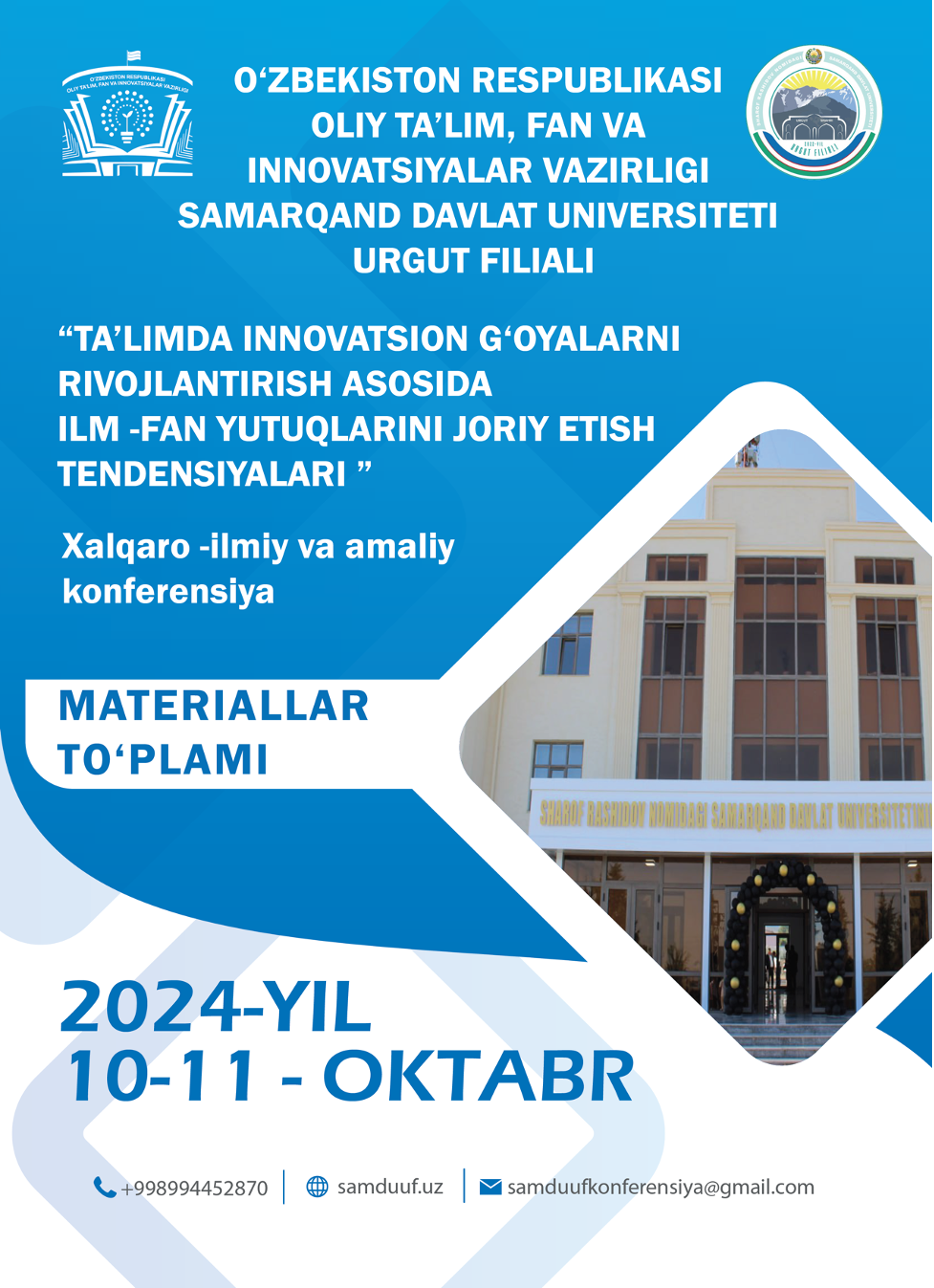UNVEILING NEW FRONTIERS IN MORAL EDUCATION: VIRTUAL REALITY AND ROLE-PLAYING GAMES IN SECONDARY SCHOOLS
Keywords:
Moral Education, Virtual Reality (VR), Role-Playing Games, Ethics, Secondary EducationAbstract
This article explores the current capabilities of virtual reality (VR) and role-playing games in moral education, highlighting the shortcomings of traditional approaches. Conventional methods typically rely on passive learning and are often inadequate for equipping students to navigate complex moral dilemmas. In contrast, VR and role-playing games foster active learning by enabling students to engage with ethical conflicts, cultivate empathy, and adopt various perspectives. The synergy between these technologies enhances the effectiveness of moral education, allowing secondary school students to immerse themselves in ethical decision-making processes and significantly contributing to their overall development.
References
1. Alkan, A., & Nazarova, S. (2024). Innovations in digital pedagogy: Bridging the gap between developed and developing countries. Science and innovation, 3(Special Issue 41), 37-41.
2. Allcoat, D., & von Mühlenen, A. (2018). Learning in virtual reality: Effects on performance, emotion and engagement. Research in Learning Technology, 26.
3. Alvarez, C., Zurita, G., Hasbún, B., Peñafiel, S., & Pezoa, Á. (2021). A social platform for fostering ethical education through role-playing. Factoring Ethics in Technology, Policy Making, Regulation and AI, 107.
4. Azevich, A. I. (2019). Virtual reality: educational and methodological aspects. RUDN Journal of Informatization in Education, 16(4), 338-350.
5. Cao, Z., Zheng, J., Li, F., & Jiashun, X. I. E. (2021, December). Application of Virtual Technology in Cultivating College Students' Moral Personality. In 2021 3rd International Conference on Machine Learning, Big Data and Business Intelligence (MLBDBI) (pp. 557-560). IEEE.
6. Dai, Z., Ke, F., Dai, C. P., Pachman, M., & Yuan, X. (2021). Role-play in virtual reality: a teaching training design case using opensimulator. In Designing, deploying, and evaluating virtual and augmented reality in education (pp. 143-163). IGI Global.
7. Dawut, A., Nakayama, H., Iwasaki, R., & Matsuda, T. (2015). Realization and Evaluation of an Information Morals Education System by Experience of an assailant and a victim by Virtual reality. In Global Learn (pp. 507-515). Association for the Advancement of Computing in Education (AACE).
8. Dufeau, D., El-Araby, N., & Kocemba, J. (2020). Limitations of Visualization Technology and Virtual Instruction in Medical Education.
9. Dyer, E., Swartzlander, B. J., & Gugliucci, M. R. (2018). Using virtual reality in medical education to teach empathy. Journal of the Medical Library Association: JMLA, 106(4), 498.
10. Francis, K. B., Gummerum, M., Ganis, G., Howard, I. S., & Terbeck, S. (2018). Virtual morality in the helping professions: Simulated action and resilience. British Journal of Psychology, 109(3), 442-465.
11. Francis, K. B., Howard, C., Howard, I. S., Gummerum, M., Ganis, G., Anderson, G., & Terbeck, S. (2016). Virtual morality: Transitioning from moral judgment to moral action?. PloS one, 11(10), e0164374.
12. Jian, W. (2002). Virtual Reality and Its Application in Industry. Journal of Hangzhou Institute of Electronic Engineering.
13. Kang, S., Chanenson, J., Ghate, P., Cowal, P., Weaver, M., & Krum, D. M. (2019, March). Advancing ethical decision making in virtual reality. In 2019 IEEE Conference on Virtual Reality and 3D User Interfaces (VR) (pp. 1008-1009). IEEE.
14. Koyuncu, F. (2016). Ahlaki Eğitim Rehberi Olarak Azmi Pir Mehmed’in Enis-ül Arifin’i. CİLT II, 909.
15. Kyaw, B. M., Saxena, N., Posadzki, P., Vseteckova, J., Nikolaou, C. K., George, P. P., ... & Tudor Car, L. (2019). Virtual reality for health professions education: systematic review and meta-analysis by the digital health education collaboration. Journal of medical Internet research, 21(1), e12959.
16. Lara Sánchez, F. D., & Rueda Etxebarria, J. (2021). Virtual Reality Not for “Being Someone” but for “Being in Someone Else’s Shoes”: Avoiding Misconceptions in Empathy Enhancement.
17. Makransky, G., & Lilleholt, L. (2018). A structural equation modeling investigation of the emotional value of immersive virtual reality in education. Educational Technology Research and Development, 66(5), 1141-1164.
18. Markowitz, D., & Bailenson, J. (2019). Virtual reality and communication. Human Communication Research, 34, 287-318.
19. Melinda, V., & Widjaja, A. E. (2022). Virtual reality applications in education. International Transactions on Education Technology, 1(1), 68-72.
20. Nandedkar, A., & DiRusso, D. (2019). Ethical Decision Making: A Role-Play Exercise. International Journal of Business and Management, 14(7).
21. Rueda, J., & Lara, F. (2020). Virtual reality and empathy enhancement: Ethical aspects. Frontiers in Robotics and AI, 7, 506984.
22. Serin, H. (2020). Virtual reality in education from the perspective of teachers. Amazonia investiga, 9(26), 291-303.
23. Shi, P. (2019). Research on effective teaching in the vision of virtual reality. In Proceedings of the 3rd International Conference on Digital Technology in Education (pp. 44-47).
24. Shilton, K., Heidenblad, D., Porter, A., Winter, S., & Kendig, M. (2020). Role-playing computer ethics: Designing and evaluating the privacy by design (PbD) simulation. Science and Engineering Ethics, 26, 2911-2926.
25. Taplin, R., Singh, A., Kerr, R., & Lee, A. (2018). The use of short role-plays for an ethics intervention in university auditing courses. Accounting Education, 27(4), 383-402.
Downloads
Published
Issue
Section
License
Copyright (c) 2024 Ahmet Alkan

This work is licensed under a Creative Commons Attribution-NonCommercial-NoDerivatives 4.0 International License.
All Rights Reserved.





